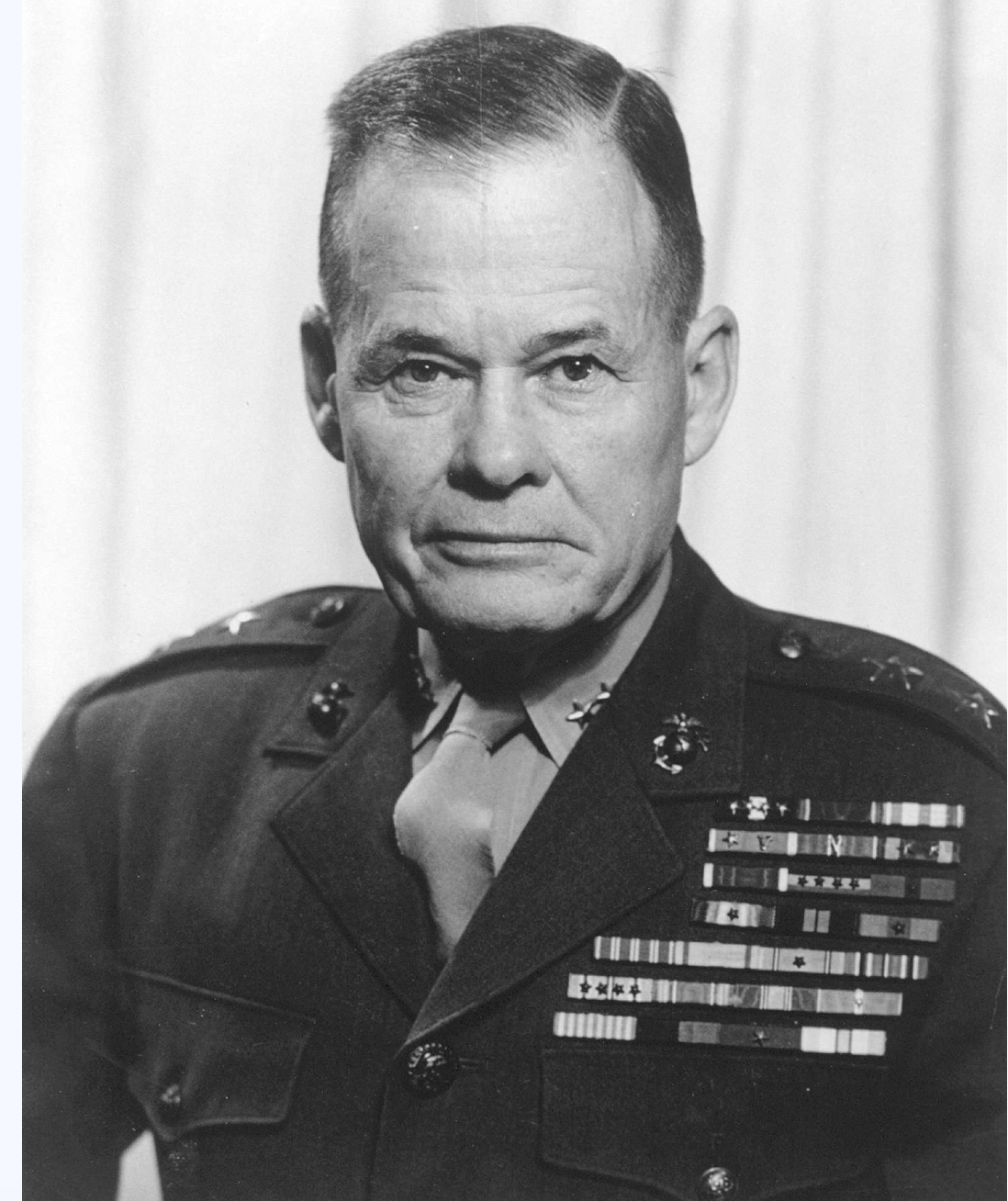
Chesty Puller: Virginian, Pipe Smoker, and the Most Decorated Marine in U.S. History
Share
Posted June 26 — In honor of his birthday
Lt. Gen. Lewis B. “Chesty” Puller, U.S. Marine Corps![]()
Lewis Burwell “Chesty” Puller was born on June 26, 1898, in West Point, Virginia. Over the course of nearly four decades in uniform, he became the most decorated Marine in United States history, and one of the most iconic figures the Marine Corps has ever produced.
Puller’s military career began in 1918, when he enlisted in the Marine Corps during the final months of World War I. Though he didn’t see combat in that war, he was eager to serve — and that determination would carry him through some of the fiercest conflicts of the 20th century.
The Early Years

In the 1920s and early 1930s, Puller served in Haiti and Nicaragua during the so-called “Banana Wars,” fighting guerrilla forces in dense jungle terrain with limited support and often under harsh conditions. For his actions he was awarded his first two Navy Crosses, awarded for valor in leading small-unit engagements deep behind enemy lines.
He quickly developed a reputation as a field officer who led from the front — always present, always under fire, and never asking more of his men than he was willing to give himself. That quality stayed with him for the rest of his career and earned the respect of Marines across ranks.
World War II

Puller received two more Navy Crosses during World War II:
- Guadalcanal: In October 1942, his battalion held off a series of major Japanese assaults. When his unit was surrounded and isolated, he coordinated artillery support and maintained the perimeter under pressure.
- Cape Gloucester: In late 1943 and early 1944, he led his men in a difficult assault against fortified Japanese positions in pouring rain and dense jungle — a campaign that tested both stamina and leadership.
He was also awarded the Silver Star for actions at Peleliu, where he continued to lead by example under heavy fire during amphibious assaults.
Korea and the Fifth Navy Cross

In 1950, Puller took command of the 1st Marine Regiment in Korea, just in time for the legendary Battle of Chosin Reservoir. Surrounded by Chinese forces in brutal sub-zero temperatures, Puller’s leadership helped maintain cohesion and discipline during a strategic withdrawal that is still studied in military schools today.
For his actions during Chosin, he was awarded his fifth Navy Cross — a record unmatched by any Marine — as well as the Distinguished Service Cross from the U.S. Army, a rare honor for a Marine officer.
Complete List of Awards and Decorations
Over his career, Puller received the following:
- Five Navy Crosses
- Distinguished Service Cross
- Silver Star
- Two Legions of Merit (with Combat “V”)
- Bronze Star (with Combat “V”)
- Three Air Medals
- Purple Heart
- Presidential Unit Citation (five awards)
- Marine Corps Good Conduct Medal (two awards)
- Marine Corps Expeditionary Medal (two awards)
- World War I Victory Medal (with West Indies clasp)
- Haitian Campaign Medal
- Second Nicaraguan Campaign Medal
- China Service Medal
- American Defense Service Medal (with Base clasp)
- American Campaign Medal
- Asiatic-Pacific Campaign Medal (with four battle stars)
- World War II Victory Medal
- National Defense Service Medal
- Korean Service Medal (with five battle stars)
- United Nations Korea Medal
- Republic of Korea Presidential Unit Citation
Foreign Honors:
- Haitian Médaille Militaire
- Nicaraguan Presidential Medal of Merit (with Diploma)
- Nicaraguan Cross of Valor (with Diploma)
- Order of Military Merit, Eulji Cordon (South Korea)
- Order of the Cloud and Banner (China)
More Than Medals
While the list of decorations is long, Puller’s legend wasn’t built on medals alone. He was known throughout the Corps as a man of principle — direct, unshakable, and wholly devoted to the welfare of his Marines. He was tough, but never theatrical; plainspoken, and deeply respected.
Puller was also a lifelong pipe smoker. In many of the photos from Guadalcanal, Korea, and elsewhere, you’ll see him with a pipe clenched in his teeth — a quiet, steadying presence amid chaos. It became part of his image, and it suited him: calm under fire, rooted in tradition, and steady as they come.
Later Years and Legacy

He was promoted to lieutenant general before retiring in 1955, and passed away in 1971 in Hampton, Virginia. He is buried at Christ Church Parish Cemetery in Middlesex County — not far from where he was born.
Even today, Puller’s name lives on in the halls of the Marine Corps. New recruits still hear his name during training. His words are quoted, his example studied. And in Marine boot camps around the country, the old saying still rings out at night:
“Good night, Chesty, wherever you are.”
